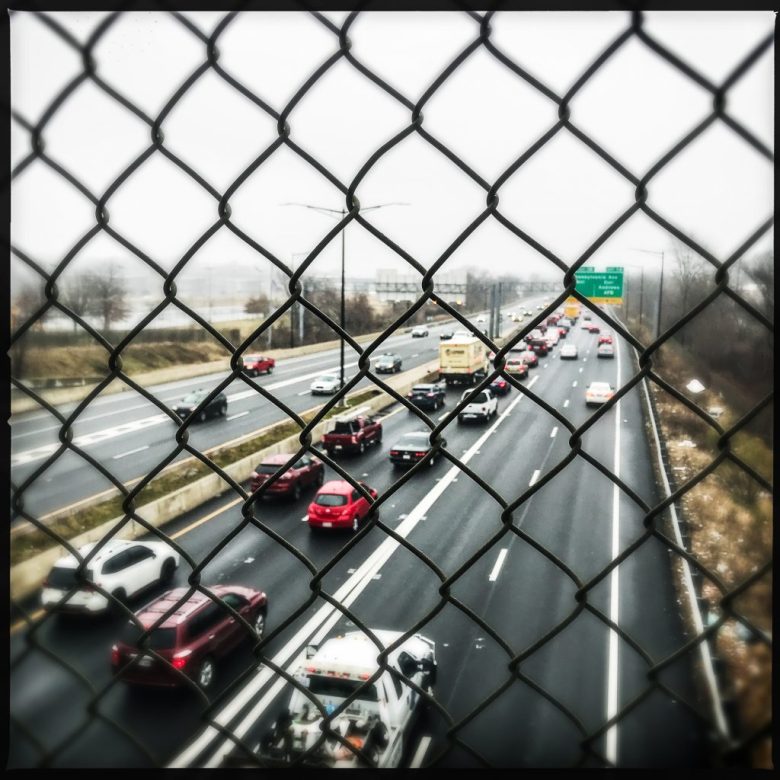Kayla Levy

GoodStudio // Shutterstock
Amid growing political polarization and ongoing national crises, politics has become a significant source of stress for many Americans. In fact, a national survey on stressors conducted by the American Psychological Association, or APA, in 2024 found that the future of the nation was the leading cause of significant stress among adults, with nearly eight in 10 (77%) reporting it as a major source of anxiety. The same study found that the increasingly strained political climate in the United States has prompted around two in five adults to consider moving to a different country (41%) or a different state (39%).
While political stress is often linked to other stressors—like mass shootings and housing costs—it is a distinct form of anxiety. A survey published last year found that political anxiety and generalized anxiety are different, showing how politics can cause worry and apprehension even for those without general anxiety.
People have translated at least some of this increased emotional turmoil into action. Negative emotions in response to daily politics motivated participants in a 2023 study to engage in political actions such as protesting or volunteering. Similarly, half of adults (51%) said they feel compelled to take political action as a result of their stress about the future of the nation—a significant increase from the 45% who said so in 2019, the APA found.
As politics continue to take center stage in many Americans’ lives, it’s important to examine the data and understand its impact on mental well-being. To do so, Charlie Health looked at the numbers, including data on the growing emotional toll of political stress, and its impact on family relationships and physical well-being.
Everyday Political Events Can Harm Psychological and Physical Well-Being
In two diary studies from 2023, researchers tracked participants’ daily emotional and behavioral responses to political events. They found that politics triggered at least some negative emotions in people on the vast majority (81%) of days surveyed. On those days, participants’ psychological and physical well-being worsened, with people reporting higher levels of fatigue, sickness, dissatisfaction with life, and depression.
Most People With Serious Mental Health Concerns Report Negative Effects From Political Issues
A significant portion of people with severe mental health conditions report that the current political climate exacerbates their struggles, according to one study. In fact, 75% of Charlie Health clients surveyed in January 2025 agree that the current political climate negatively impacts their mental health. As a result, over half (57%) try to avoid political discussions, highlighting the emotional toll these conversations can take. One respondent shared, “Politics is extremely detrimental to my emotional well-being. Discussions of current political affairs fill me with overwhelming feelings of hopelessness, despair, anger, and depression, and worsen my suicidal urges.”
Politics Can Harm Peoples’ Well-Being as Much—or More Than—Alcohol
That politics negatively affects well-being is not a new discovery. An earlier study, conducted in 2017 and matched to nationally representative data, found that the public health impacts of politics are comparable to or worse than those associated with alcohol. Based on responses, researchers estimated that 94 million Americans felt politics caused significant stress, 44 million lost sleep, 30 million suffered physical health harm, and 11 million had suicidal thoughts—effects comparable to or worse than those associated with alcohol.
If you’re experiencing suicidal thoughts or are in danger of harming yourself, this is a mental health emergency. Contact The Suicide & Crisis Lifeline 24/7 by calling or texting 988.
Politics-Related Well-Being Issues Worsened for Many in Recent Years
One of the researchers of the aforementioned study re-surveyed people in 2020 and compared the findings, concluding that health worsened for many between 2017 and 2020. The most significant changes were concentrated in physical health impacts, including worsened stress, fatigue, and sleep loss. However, these effects weren’t felt among all people equally—younger, politically engaged individuals reported the most significant changes in well-being.
Also, the effects weren’t just physical. Survey data also revealed statistically significant increases in thinking about politics more than desired, as well as family problems caused by politics. These findings are similar to those in the APA study, which concluded that about one in three people reported the political climate strained family relationships (32%) and limited family interactions due to differing values (30%).
Political Polarization Is Linked With Worse Anxiety and Depression for Some
It’s not just political events that can impact mental health. Believing that polarization has increased since 2014 (as many experts do) is linked with increased anxiety and depression, according to one nationally representative study. The study found that people perceiving increased polarization in recent years had up to 57% higher odds of developing anxiety and depressive disorders. High perceptions of state-level polarization (both among voters and elected officials) were also associated with a higher likelihood of depressive and sleep disorders.
How to Cope With Political Stress
Political stress may persist for many amid increasing polarization and global crises, but there are steps you can take to protect your well-being. Here are a few practical strategies for managing political stress:
Be mindful of exposure to political content
Research consistently shows that exposure to constant news cycles and social media updates can heighten stress. Consider setting specific times to check the news, limiting your social media use, or curating your feed. Reducing exposure can help prevent information overload and lower anxiety levels.
Engage in productive political action
Redirecting feelings of helplessness or frustration about political issues into action can give you a sense of control and purpose. Consider volunteering with a local organization, educating others on political issues, or taking action with a group that shares your values. Channeling energy into positive change can help mitigate feelings of powerlessness.
Seek support
If political stress starts to feel overwhelming, don’t hesitate to reach out for support, including from a trusted friend or supportive community. In the event that political stress starts to interfere with daily well-being, though, it might be important to consider professional help. Talking to a licensed mental health professional can make it easier to cope with politics-related mental health concerns.
![]()
This story was produced by Charlie Health and reviewed and distributed by Stacker.
#politics #worsening #peoples #mental #healthHeres #data #shows










Leave a Reply